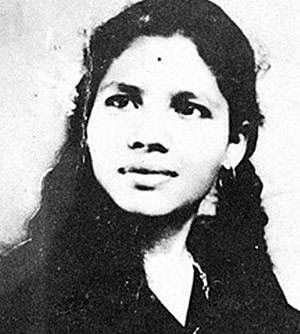Articles features
Passive euthanasia not enough, say activists

New Delhi, May 18
The death on Monday of Aruna
Shanbaug, the nurse who lived in a vegetative state in a Mumbai
hospital for 42 long years, has renewed the debate on euthanasia, with
some demanding that the judiciary and the government should engage on
the issue proactively.
Although the Supreme Court had rejected a
plea for euthanasia filed by Aruna Shanbaug's friend, journalist Pinki
Virani in 2011, it passed a landmark judgment allowing passive
euthanasia with safeguards.
Virani told IANS India needs a comprehensive debate on the issue.
"There
is not enough legal literacy in India. The court has allowed passive
euthanasia for special cases. It is possible in three scenarios -- if
the patient is brain dead, or is in a persistent vegetative state, or on
ventilator support," she said.
"Aruna Shanbaug, all her life, never received justice, right from the night she was brutally raped," she added.
The
apex court had ruled that the passive euthanasia would require the
permission of the high court which should ensure that the decision was
in the patient's best interest. It also needed the opinion of three
doctors who had examined the patient.
Although passive euthanasia
is yet to become a law, the apex court on July 16 last year reopened
the debate when it issued notice to all states seeking their views on
whether a terminally ill person can execute a 'living will' that his or
her life support system be withdrawn if he or she reaches a vegetative
state with no hope of revival.
"Living will is a declaration
made by a person in the event of deteriorating health conditions or
terminal illness. It could be presented to a doctor. It is a document in
which the person states his/her wish to end life if normal life is not
possible," Swapna Jha, a lawyer for NGO Common Cause, told IANS.
The
apex court acted on a petition filed by Common Cause seeking voluntary
passive euthanasia, including withdrawal of life support system to a
terminally ill person and stopping medication.
Lawyer Rebecca
John said Shanbaug's was an extreme case of injustice, and there was a
need for a robust debate on the right to euthanasia.
"Aruna's
issue was not resolved legally. It is far deeper than what it looks
like. You cannot allow a person to live like a vegetable for so many
years," John told IANS.
She said passive euthanasia was not an answer to the issue.
"The
idea of passive euthanasia is not practical in India. It is only
skirting the actual problem. How many people will go for a living will
while they are healthy? The court is only taking a short cut by allowing
passive euthanasia," John add
Pleas for euthanasia
Pleas for euthanasia were made not only on behalf of nurse Aruna Shanbaug, but kin of many others in similar vegetative state also had sought end of their lives in a dignified manner. Most of these pleas were, however, rejected.Those fighting difficult and debilitating illnesses had also pleaded for euthanasia in the absence of proper treatment or the funds required for the same.
Euthanasia is an act of intentionally ending a life to end pain in the case of terminally ill patients or those in a persistent vegetative state.
Passive euthanasia - withdrawing life support of patients in a persistent vegetative state - is, however, legal in India.
Some of the instances of euthanasia pleas:
2013, Dennis Kumar, Tamil Nadu: A porter, Dennis Kumar from Kanyakumari district sought permission from the district collector to grant euthanasia for his infant son, who had been suffering since birth from an unknown disorder. Unable to pay for his treatment or see his son suffer, Kumar felt euthanasia would relieve both his son and him of their misery. The plea was rejected by a court.
2008, Jeet Narayan, Uttar Pradesh: Jeet Narayan of Mirzapur had pleaded for euthanasia for his four sons who were all paralysed below the neck and were confined to bed. He had written in 2008 to President Pratibha Patil, who rejected his plea.
2008, Dilip Machua, Jharkhand: Dilip Machua who was paralysed following an accident in 2008 had pleaded for mercy killing. His plea was not granted, but Machua died later.
2003, Jharkhand: An acid attack victim in Dhanbad had pleaded for euthanasia or medical support for her skin reconstructive surgery. The acid attack had left her partially deaf, almost blind and with burnt skin all over her face, eyes and nose. With no money for surgery, the victim appealed to the government to fund her or give her the right to kill herself. Her pleas were rejected.
The Supreme Court on March 7, 2011, ruled out active euthanasia -- the administration of a lethal injection to end lives of terminally ill patients.
The court permitted only passive euthanasia for patients who were either brain dead, or were in a persistent vegetative state or were supported entirely through a ventilator or any artificial life support.



































